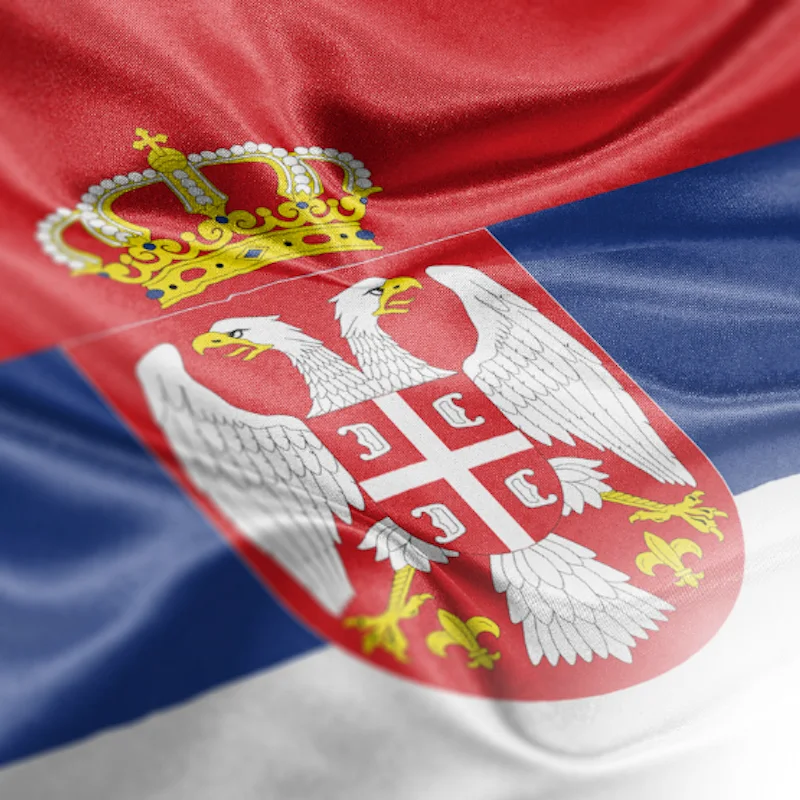
Going to Portugal in 2026? Heads-Up for Travelers
Sarah Pardi - December 23, 2025
Home > Travel Requirements, Policy & Authorization > Going to Portugal in 2026? Heads-Up for Travelers
Share this post
A trip to Portugal is on the horizon. By now, chances are you have a good idea about which city (or cities) you'd like to visit, what food you'd like to try, and sites you'd like to see.
You've probably also started looking at accommodation rentals, and maybe you've even booked one already.
However, there may be a few things that haven't crossed your mind yet, like city taxes and whether or not you need to pay them during your trip.
Don't worry, we have the answers!
Psst...you might also be interested in our Portugal visa guide!
Portugal city taxes
What are they?
Countries approach tourist taxes (also often referred to as city taxes) in different ways, but most popular tourist destinations impose them.
These taxes are typically designed to help maintain and strengthen a city or country's tourism infrastructure, but the revenue can also support other related things.
Portugal's tourist taxes vary depending on the region/city that you're visiting, and sometimes the seasonality. This isn't an uncommon way to do it. Greece and Italy, for example, approach their tourist taxes in a similar way.
In Portugal, the tax is charged for those staying in paid accommodations (like a hotel, hostel, or campsite). This means that if you're staying with a friend or family member in Portugal, you will not be required to pay it.

How are they calculated?
Tourist taxes, including those for Portugal, are typically charged on a per-night, per-person basis.
The amount that you have to pay often depends on the accommodation you're staying in, and sometimes seasonality too. Sometimes hotels with different ratings have different taxes. For instance, 5-star hotels are sometimes taxed at a higher rate than 2-star ones. Or, hotels might have higher taxes than campgrounds. These are all just examples, but this is a common way that European countries vary their tax rates.
Many popular cities that see exponential increases in tourism during the high seasons will increase their tax rates. They do this for a few reasons: to capitalize on the higher foot traffic, but also to help curb overwhelming tourism.
In Portugal, different city councils/regions can impose different tax rates, and there is a legislative process to do so. This means that tax rates don't just change willy-nilly. They're deeply considered, formally introduced, and rolled out in an official timeline.
In Portugal specifically, city taxes are usually more of a "blanket" rate, meaning they don't typically vary based on the type of accommodation you're staying at. They tend to be a flat rate, whether you're staying in a 5-star suite or a friendly bed and breakfast.
Some cities have seasonal rates, while others don't.
How are they collected?
Because Portugal's tourist taxes are based on overnight stays, the accommodation that you choose is responsible for collecting them.
How they are collected depends on the specific hotel/inn/etc, and how you booked your stay.
If you booked your stay through a short-term rental site (like Airbnb or Booking.com, for example), the tax will likely be collected when you pay online.
However, if you're staying in a hotel, the tax might be collected on-site, often after your visit, but sometimes it is collected before.
One thing to keep in mind is that tourist taxes are not always included in the listing price of your lodgings, but they could be. Always check the pricing breakdown before you book so you can see what is included in the presented price and what isn't.
Regardless, it isn't the traveler's responsibility to submit their tax. It's your accommodation's responsibility to collect it and to prompt the transaction.
Planning a Trip to Portugal?
Get travel insurance for peak peace of mind 🧘🏻♀️
The current rates
Now that you have a good understanding of what tourist taxes are and how they work, it's time to take a look at what those rates actually are in Portugal.
This way, you will know how much you can expect to pay during your time overseas.
As mentioned above, Portugal's tourist taxes vary depending on where you're visiting.

Lisbon city tax rates
Lisbon, Portugal's sunny capital, charges €4.00 per night, per person (13 years and older). They do not have differing rates depending on the type of lodging you have booked.
There is also a seven-night cap, which means the most you will be charged in one trip is €28.00. This doesn't mean you can only stay in Lisbon for seven days; it just means that you won't continue to be charged after the initial (consecutive) seven-day period.
Some travelers are exempt from paying the tourist tax in Lisbon, including:
- Travelers staying in Portugal for medical treatment. The tax is waived during the treatment, hospital stay, and one additional night.
- Students and scholarship holders are exempt for their first 60 days of every academic year.
- Children under the age of 13.
- Travelers staying with friends or family members (and not exchanging payment for staying).

Porto city tax rates
Porto charges a tourist tax of €3.00 per night, per person aged 12 and older. You may see the tax referred to as MTT (Municipal Tourist Tax). This tax doesn't change from low season to high season, and it's the same regardless of the type of accommodation you're staying in.
The most a tourist in Porto can be charged is €21.00 per trip, which is equivalent to a seven-night stay. The stay must be consecutive.
Porto offers several exemptions. The following types of travelers do not need to pay the tax:
- Children under the age of 12.
- Guests receiving medical treatment in Porto
- Travelers with disabilities "equal to or greater than 60%".
- On the first night of a religious pilgrimage to Santiago de Compostela or Fátima, when staying in pilgrim hostels.
- Some other exemptions concerning asylum, displacement, and eviction.
- Travelers who are not renting accommodation, but instead are staying with a family member or friend.
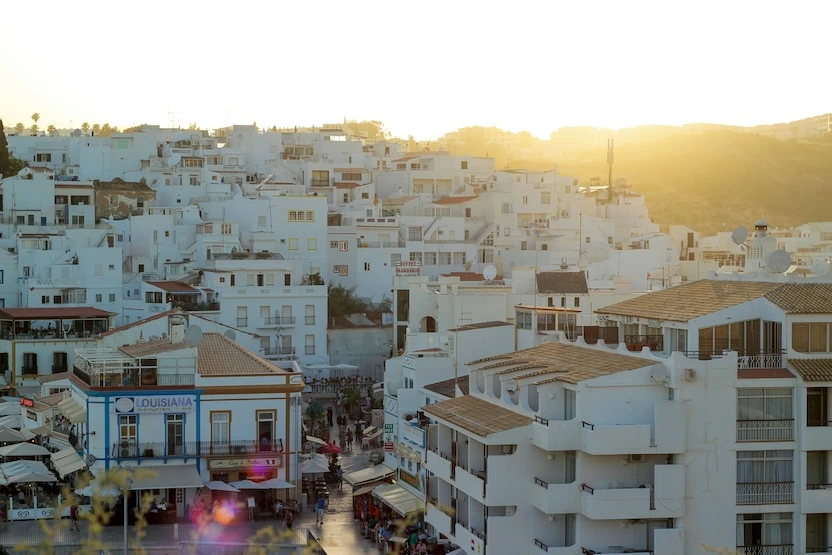
Albufeira city tax rates
Located on the southern coast of Portugal, Albufeira's tourist tax is €2.00 per night, per person for travelers 13 years and older. The tax is only charged during the high tourist season, which is from April to October.
The most that a visitor can be charged per stay is €14.00, which is equivalent to a seven-night trip. Keep in mind that in order to meet the maximum, the seven nights have to be consecutive.
The following travelers are exempt from Albufeira's city tax:
- Travelers under the age of 13.
- Travelers being hosted by a family member or friend.
- Travelers heading to Albufeira for medical treatment.
- Guests who become ill during their stay and/or require treatment.
- Exemptions may be made on other grounds, but they are case-by-case.

Braga city tax rates
In northwestern Portugal, Braga has a tourist tax of €1.50 per night, per person 16 years and older. This tax is charged during the peak travel season (March 1st through October 31st) and only applies to local accommodations and tourist developments, not campsites.
Tourists are only charged for the first four consecutive days spent in Braga, which means the most you can be taxed in a single trip is €6.00 per person.
Some visitors do not have to pay the Braga tourist tax. The following travelers are exempt:
- Children under the age of 16.
- Travelers being hosted by a friend or family member.
- Travelers staying in campgrounds.
- Travelers visiting Braga for medical treatment.
- Visitors with disabilities of "60% or more".
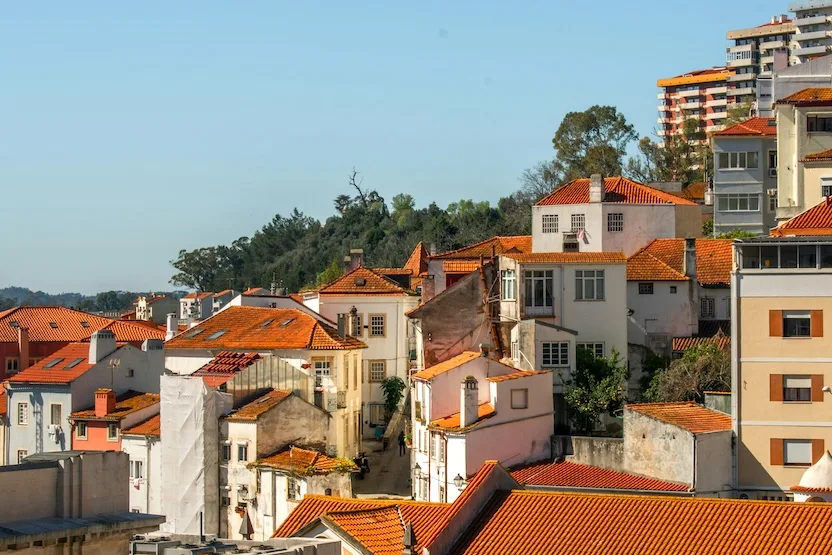
Coimbra city tax rates
Visitors who are 16 years and older will need to pay €1.00 per person, per night when staying in Coimbra, Portugal.
The most a traveler can be charged per-stay in Coimbra is €3.00, which is equivalent to a visit of three consecutive nights.
Not all visitors have to pay the tax. The following types of travelers are exempt:
- Children under the age of 16.
- Visitors staying with friends or family members (without exchanging payment).
- Travelers visiting Coimbra for medical treatments or procedures.
- Travelers with disabilities "equal to or greater than 60%".
- Other exemptions are possible when it comes to social security, relocation due to weather, some exchange students, etc.
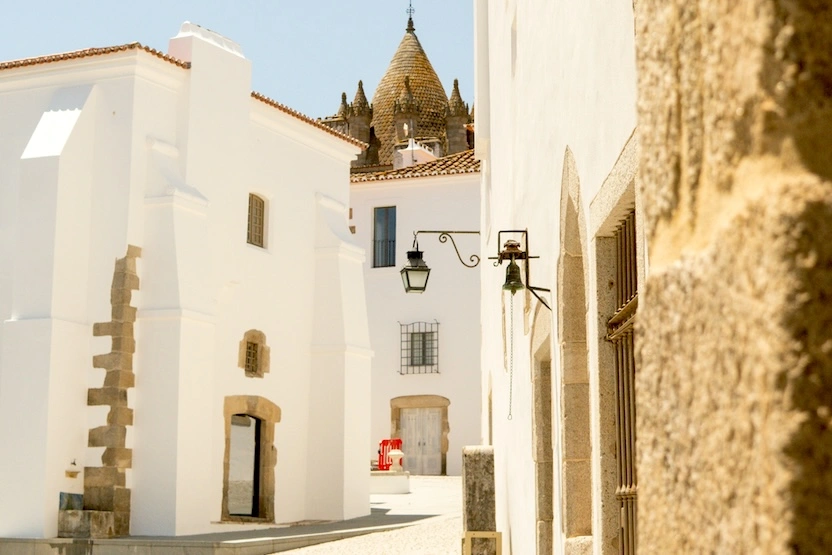
Évora city tax rates
The city tax for Évora is €1.50 per night, per person 16 years and older.
The most a traveler can be charged in tax (per trip) is €4.50, or taxes equivalent to a three-night stay (consecutively).
Some travelers are exempt from Évora's city tax, which includes:
- Travelers under the age of 16.
- Travelers being hosted by a family member or friend.
- Travelers staying in Évora for medical treatment or procedures.
- Travelers with disabilities "equal to or greater than 60%."
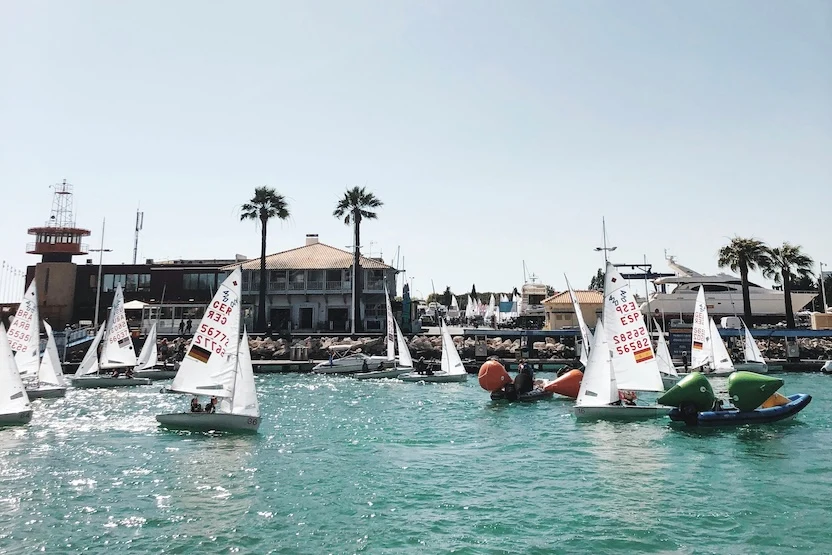
Faro city tax rates
Unlike many cities in Portugal, Faro has two different tax rates that depend on the time of year you are visiting. Their tax rates do not vary by accommodation type. Whether you're staying in a hotel or a campsite, you will need to pay the tax.
During the low season (November 1st through February 28th (or 29th on Leap Year)): €1.00 per night, per person aged 16 years or older.
During high season (March 1st through October 31st): €2.00 per night, per person 16 years or older.
The most that a traveler can be charged per stay is for seven consecutive nights. In the low season, that is €7.00. In the high, it's €14.00.
Several visitors are exempt from Faro's tourist tax, including:
- Children under the age of 16.
- Tourists staying with friends or family members (not in exchange for payment).
- Travelers visiting Faro for medical reasons.
- Travelers who have a disability "equal to or greater than 60%".
- There are additional exemptions that apply to study-abroad students in specific situations.
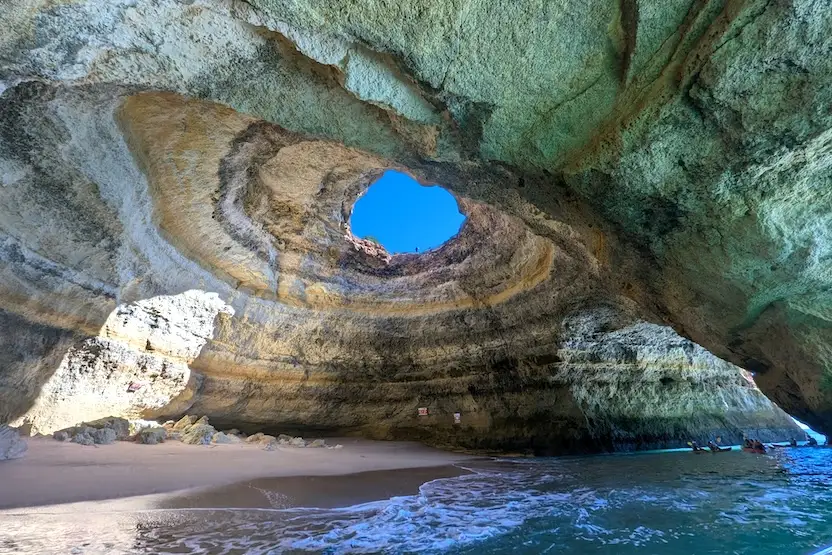
Lagoa city tax rates
Visitors staying in Lagoa must pay a tourist tax that varies by season.
Low season rate (November 1st through March 31st): €1.00 per night, per person aged 13 and older.
High season rate (April 1st through October 31st): €2.00 per night, per person aged 13 and older.
The most that a tourist can expect to pay in Lagoa (per trip) is equivalent to a seven-night stay. In the low season, that is €7.00 per night. In the high season, it is €14.00. The days must be consecutive.
Travelers who are exempt from paying the Lagoa city tax include:
- Travelers under the age of 13.
- Travelers staying with a friend or family (without the exchange of payment).
- Visitors with disabilities that are "equal to or greater than 60%".
- Some students studying abroad, in certain circumstances.
- Travelers visiting Lagoa for medical treatment.

Portimão city tax rates
The tourist tax for Portimão varies depending on the season.
Low season (November 1st through March 31st): €1.00 per person, per night (13 years and older).
High season (April 1st through October 31st): €2.00 per person, per night (13 years and older).
This includes hotels, campgrounds, hostels, and all other tourist accommodations and lodgings.
The most that a visitor to Portimão will be charged in tax is that which is equivalent to a seven-night stay. In the low season, that would be €7.00 per person. In the high season, it's €14.00. This is per trip, providing the nights are consecutive.
There are several exemptions, which include:
- Visitors younger than 13.
- Visitors being hosted by a friend or family member.
- Visitors (including one companion) who are staying in Portimão for medical treatments.
- Tourists with a disability that is "equal to or greater than 60%".
- Some other exemptions are possible, such as force majeure.

Sintra city tax rates
Tourists visiting Sintra must pay a tourist tax of €2.00 per night, per person (ages 13 and over). This rate does not change based on seasonality or type of lodging.
The most that a tourist can be charged during a single stay in Sintra is €6.00, which is equivalent to three nights (they must be consecutive).
The following travelers are exempt from paying Sintra's per-night tourist tax:
- Travelers under the age of 13.
- Travelers who are not renting accommodations (specifically, staying with family or friends).
- Guests visiting Sintra for medical tests, treatments, or procedures.
- Visitors staying in facilities under the guidance of the City Council or Social Security.
A final note
While this isn't an inclusive list of every single tourist tax you may face in Portugal, it does give you a good overview of the typical rates and how they are charged, as well as the rates for some of the most visited locations in the country.
If you're confused about tourist taxes or are looking for a rate that isn't detailed in this guide, you can always reach out to your hotel or the official tourist website of your city.
They should be able to give you specific information so you can head to Portugal with the information you need.
Happy travels!
Other Portugal Guides
- Learn about the water quality in Portugal in our Portugal Tap Water Guide.
- Heading to Lisbon? Check out these unique things to do in Lisbon!
- Hoping to stay in Portugal long-term? Check out our Portugal Long Stay Visas Guide.
- If you're still in the planning phases, you might want to read our guide about the best places to visit in Portugal.
- ETIAS will soon be required for many travelers heading to Portugal. Learn whether or not you'll need to get approval in our Portugal ETIAS Guide.
Related posts
Upcoming travels ? Get Insured !
Find the right insurance for your trip by using our powerful comparison tool!
Sarah Pardi - February 19, 2026
Sarah Pardi - February 13, 2026
Sarah Pardi - February 12, 2026
Sarah Pardi - February 6, 2026





